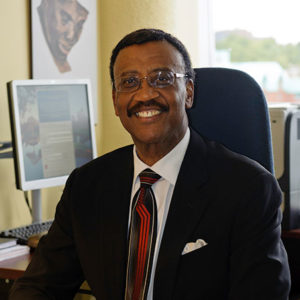
Douglas Ruck, KC.
The Board of Governors of the University of King’s College today named Douglas Ruck, BA’72, QC, as its next chair. Ruck will succeed Dale Godsoe, CM, effective July 1, 2018.
“We are delighted to share this news,” says Godsoe. “We are fortunate to receive the benefit of Doug’s impressive and extensive professional experience. The fact that he is also a King’s alumnus is icing on the cake. I look forward to working with Doug through this transitional period and I know he too will enjoy working with this board and President William Lahey.”
Douglas Ruck, QC, a graduate of the University of King’s College, went on to earn his law degree from Dalhousie University. Over the course of his legal career, Ruck specialized in labour relations and employment, human rights, occupational health and safety, civil litigation and administrative law. While in private practice as senior managing partner with Ruck & Mitchell, he chaired the Nova Scotia Labour Standards Tribunal, the Civil Service Employee Relations Board and the Public Sector Compensation Restraint Board. He also served as Chairperson Board of Inquiry for the Human Rights Commission and first full-time chair of the Nova Scotia Labour Board.
In 1995, Ruck was appointed Ombudsman for Nova Scotia, serving until 2000. During this time, he promoted the development and implementation of alternative dispute resolutions systems throughout the government and chaired the Premier’s Task Force on Employment Equity in Nova Scotia. Ruck was instrumental in the creation and implementation of the Children’s Ombudsman for the province of Nova Scotia and was a founding director of the Canadian Ombudsman Association and served as one of the North American representatives on the International Ombudsman Association.
In 2001, Ruck was appointed Vice-Chair of the Canada Industrial Relations Board. In 2009 he became Special Advisor to the Chair, a role he held until 2011. During his time with the Board, Ruck travelled throughout Canada conducting and directing adjudicative and mediation processes to resolve industrial relation disputes. He also contributed to and promoted effective industrial relations in works, undertakings and businesses that fall within the authority of the Parliament of Canada by interpreting and applying the Canada Labour Code.
A long-time community leader, Ruck has shared his time and expertise with a range of volunteer organizations, including the Black Cultural Centre of Nova Scotia, East Preston Day Care, Rotary Club of Halifax, Change Canada Foundation, Duke of Edinburgh Awards and the Nova Scotia Law Foundation.
Ruck’s connection to King’s dates to his student days when he served as president of the King’s Students’ Union and was elected valedictorian of his graduating class of 1972. Ruck later served the King’s Alumni Association as vice-president and sat on the King’s Board of Governors as alumni representative from 1997-2001.
The King’s Alumni Association honoured Ruck in 2017 with the Judge J. Elliott Hudson Distinguished Alumnus/a Award for significant contribution to both his profession and his community. Ruck is currently a member of the King’s review panel for the scholarly inquiry examining the possible connections, direct and indirect, of the university with slavery in the late 18th and early 19th centuries.
“I’m delighted to be returning to my alma mater in this new capacity,” says Ruck. “King’s is a place of academic rigour, independent thinking and rich collegial life. I look forward to working with the board, President Lahey, faculty and staff in our shared desire to see more young adults enjoy the unparalleled student experience that defines King’s.”
King’s President and Vice-Chancellor, William Lahey, describes Godsoe and Ruck as long-time, committed friends of King’s. “We are deeply grateful to Dale for her generous guidance and counsel over the years, and we look forward to carrying on her work with Doug as we ensure that the transformative education that defines King’s is understood, appreciated and concretely valued both on campus and in the wider world.”

